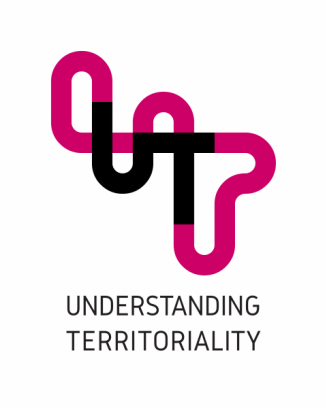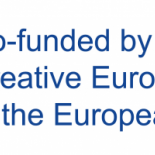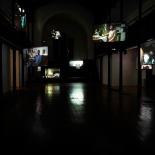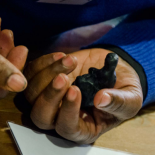Understanding Territoriality is a collaboration between the contemporary visual arts organisations: Fabrica (UK), Netwerk (Belgium) and Cittadellarte (Italy), and contemporary design organisation Otvorena Soba (Macedonia), co-funded by the Creative Europe Programme of the European Union.
Through exhibitions, international residencies, audience engagement programmes and discursive events Understanding Territoriality creates an artistic programme for diverse audiences that will further our understanding of ‘territoriality’ and its relationship to cultural identity, and provide a platform to debate its importance to Europe.
The project asks: How can we better understand these tensions, open up the debate beyond politicians and academics and move our societies forward in ways that enable our individuality and local distinctiveness to flourish, whilst minimising confrontation and maximising co-operation?
The project partners are convinced that better knowledge of our territorial nature in the modern world is essential to understanding these tensions and is a pre-requisite to developing methodologies that support national unity and closer ties within the EU and the wider European neighbourhood.
Territoriality is an anthropological concept derived from the observation of animal behaviours, and is concerned with how animals (including humans) demonstrate ownership or occupancy of areas and possessions. Humankind extrapolates this behaviour into the complex social structures of nation states and agglomerated territories, such as the EU. Trust is the key social skill that has been developed in order to achieve this.
Understanding Territoriality creates an artistic programme that will further the understanding of ‘territoriality’ for diverse audiences and provide a platform to debate its importance to Europe. Once explained, territoriality is a concept that is easily understood by teenagers and adults alike. As a theme it evokes personal, historical and political references, which is essential as our intention is to engage audiences who are not normally involved (or interested) in discussing the politics of the nation state or the EU.
Our cultural identity is expressed in our urban planning, architecture and the objects we make. Aside from personal and domestic space our locality is the territory we feel most emotionally connected to. This connection is often exploited by Eurosceptic and nationalist arguments but often neglected as a subject for discussion by Europhiles.
The forces of identity-building consumerism, the super-connectivity of social media, the speed and certainty of geographical mobility (whether by choice or force) are constantly challenging our sense of self, place and where we belong.
These influences affect us profoundly as individuals and societies but they are complex to articulate. However there is a clear imperative to do so, and to open up the debate beyond politicians and academics. Artists can do this.




